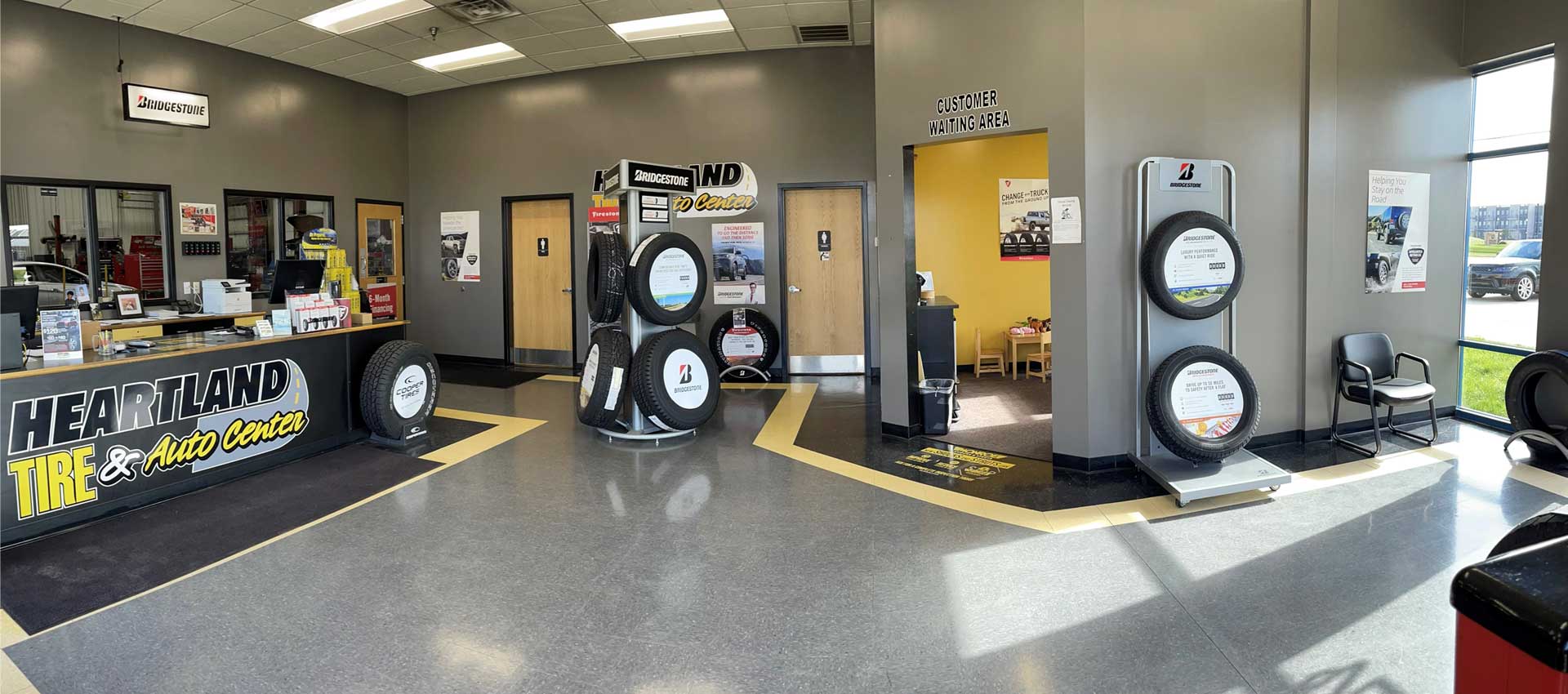Dependable Tire Shop Morris: Your Location for High Quality Tires and Services
Dependable Tire Shop Morris: Your Location for High Quality Tires and Services
Blog Article
Tire Service: The Effect of Weather Condition Problems
When it comes to making certain ideal performance and safety and security on the roadway, understanding the effect of climate condition on tire solution is critical. From scorching heat to icy roadways, each weather aspect can substantially influence tire performance and total driving experience. By delving into the impacts of differing weather on tires, chauffeurs can obtain important understandings that may boost their vehicle's performance and long life. In this discussion, we will check out the complex connection in between weather conditions and tire service, losing light on the significance of weather-specific tire maintenance methods and factors to consider.
Heat and Tire Performance
When revealed to high temperatures, tires experience adjustments in efficiency that can dramatically impact lorry security and handling. The warm created from extended driving or warm climate problems causes the tire rubber to soften, leading to reduced step life and boosted wear. As the rubber ends up being softer, the tire's hold when driving lessens, impacting stopping ranges and overall grip. In extreme situations, excessive warmth can also cause tire blowouts, posing a serious security danger to the vehicle and its residents.
Moreover, high temperature levels can increase the procedure of tire aging, triggering the rubber to degrade more rapidly. To mitigate the effects of warm on tire performance, motorists should routinely inspect their tire stress, revolve tires to guarantee even use, and inspect for any kind of indicators of damage.
Cold Climate Impacts
Winter problems can have a substantial influence on tire efficiency and safety and security. As temperature levels decrease, tire rubber can solidify, causing reduced grip on icy or snow-covered roads. In winter, tires may also lose atmospheric pressure a lot more rapidly, which can impact handling and fuel efficiency. In addition, cool temperatures can cause tire sidewalls to tense, boosting the threat of damages from potholes or other road risks.
To minimize the impacts of winter on tires, it is critical to regularly check tire pressure and inflate them to the manufacturer's recommended levels. Utilizing wintertime or all-season tires developed for winter conditions can also improve grip and grasp on icy or snowy roads - discount tires morris il. Correct tire upkeep, consisting of normal assessments for wear and damages, becomes a lot more important during cooler months to ensure optimum efficiency and safety
Rainy Issues Impact
Throughout rainy problems, tire efficiency and safety and security can be substantially influenced by the wet road surface areas and lowered visibility. The step pattern of tires plays a vital function in maintaining grip on damp roadways. Tires with worn-out footsteps are more susceptible to hydroplaning, where a layer of water accumulates between the roadway and the tire surface area, resulting in loss of grip. To combat this, drivers must on a regular basis check their tires for adequate tread depth and take into consideration investing in tires Look At This especially made for wet conditions.

Snow and Tire Safety And Security
When driving in snowy conditions, having the ideal tires can make a considerable distinction in safety and security and performance. Winter months tires are developed with special rubber substances and walk patterns to supply far better grip on snow and ice contrasted to all-season tires.
In addition to using wintertime tires, it is vital to ensure they are appropriately blown up. Cold climate can cause tire pressure to drop, impacting traction and handling (morris tire and alignment). Regularly inspecting and preserving the correct tire stress is crucial for ideal efficiency in snowy problems

Weather-Related Tire Maintenance
When confronted with numerous weather problems, appropriate tire upkeep ends up being a critical facet of automobile safety and efficiency. Weather-related tire maintenance incorporates a series of techniques aimed at guaranteeing optimum tire function and durability in different weather situations. One key facet of weather-related tire upkeep is tire stress law. Changing temperature levels can trigger tire stress to differ, influencing grip and fuel effectiveness. Routinely examining and changing tire stress according to supplier recommendations is crucial for secure driving in changing climate problems. In addition, tire walk depth plays a significant duty in dealing with various weather condition elements. Tires with adequate tread deepness provide much better hold on damp or icy roads, reducing the risk of hydroplaning or skidding. Evaluating tire walk consistently and replacing tires when walk wear gets to a certain depth is essential for keeping grip and security in negative weather. By focusing my site on weather-related tire maintenance, motorists can improve security, enhance car performance, and lengthen the life expectancy of their tires.
Verdict
In verdict, weather conditions have a considerable effect on tire performance and security (tires morris il). From warmth impacting tire pressure and wear to cold weather decreasing grip, it is important to think about the weather condition when keeping and utilizing tires.
In this conversation, we will explore the elaborate connection between weather problems and tire solution, losing light on the relevance of weather-specific tire upkeep methods and factors to consider.

Report this page